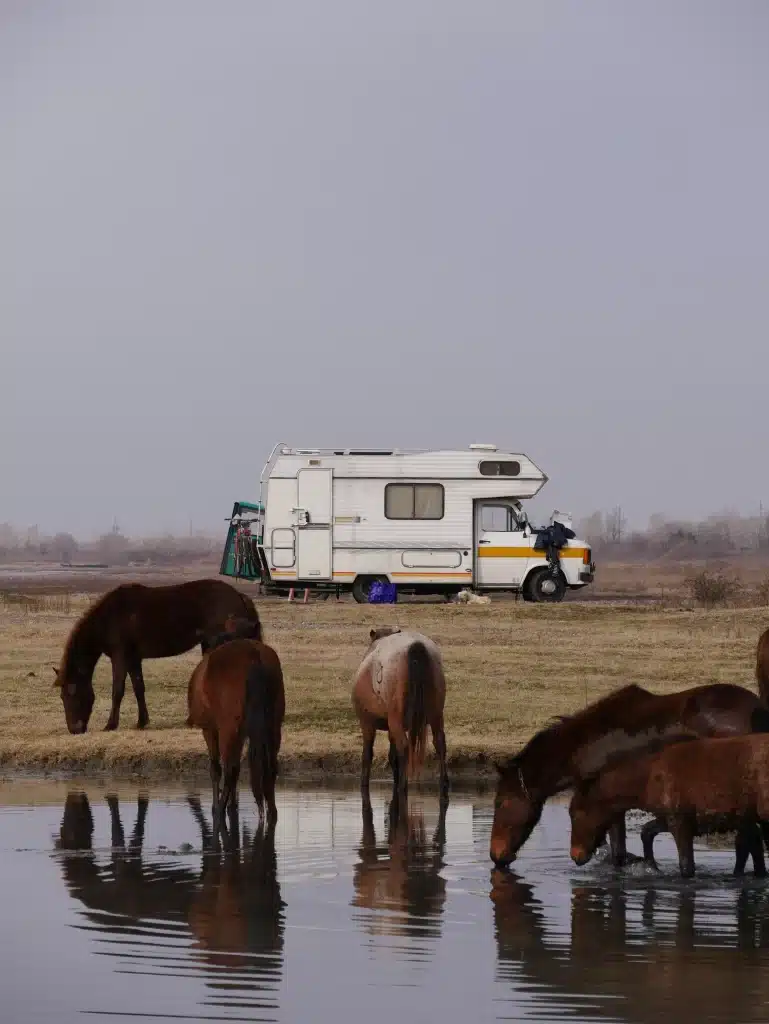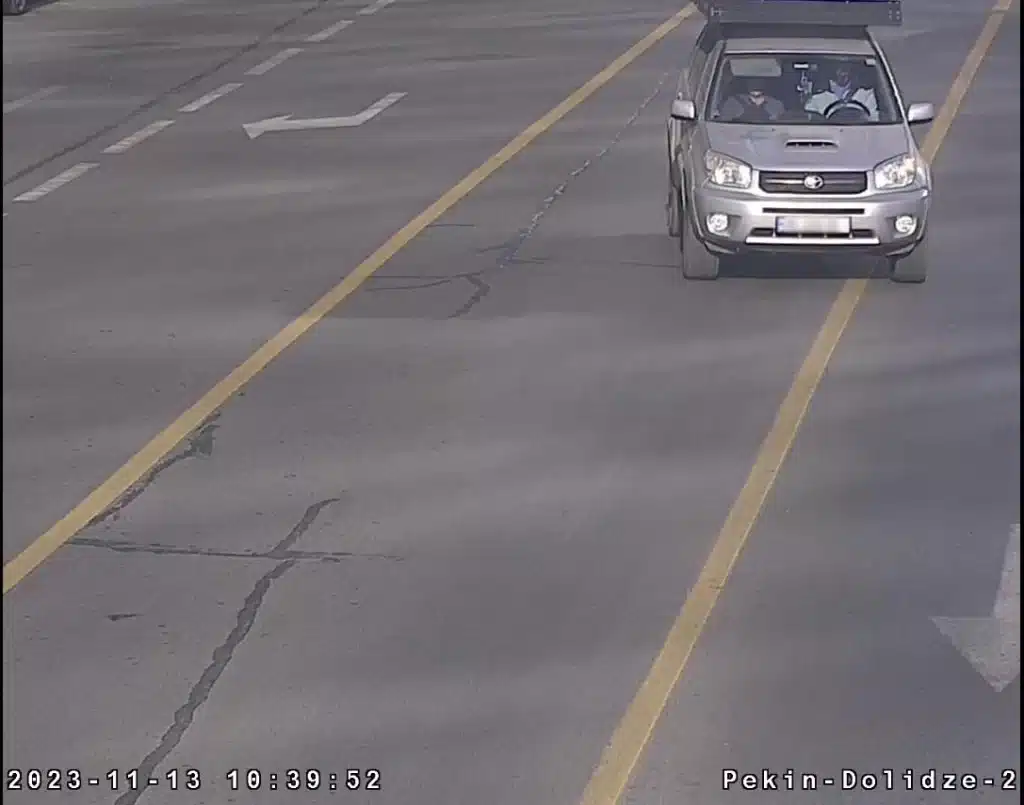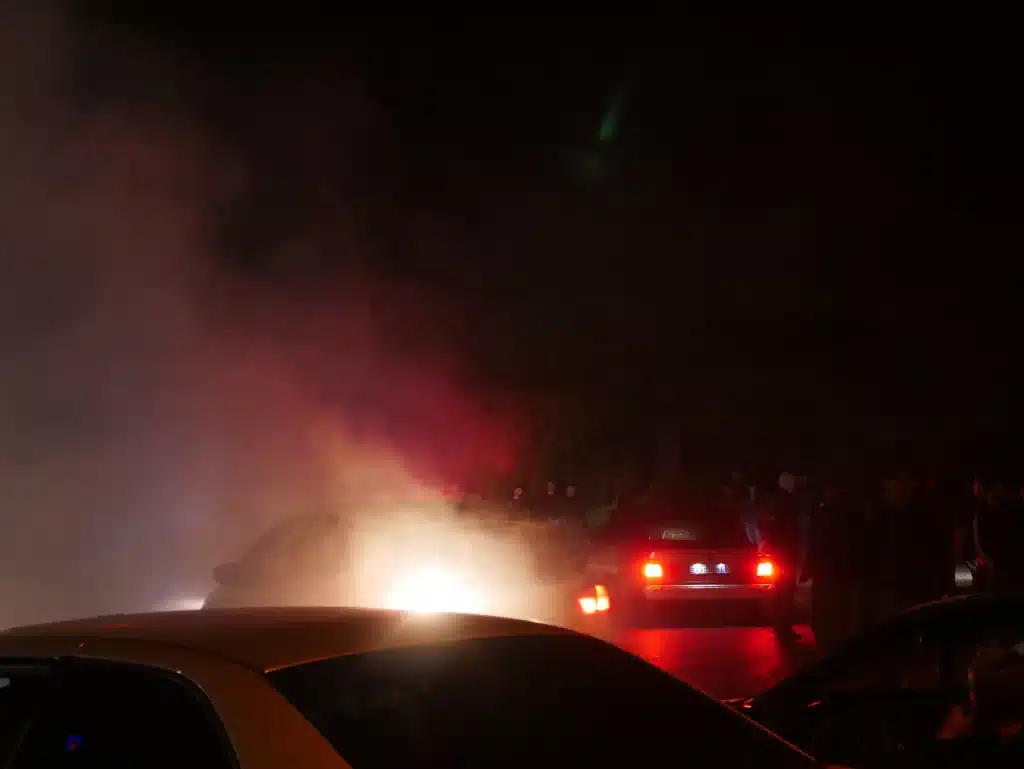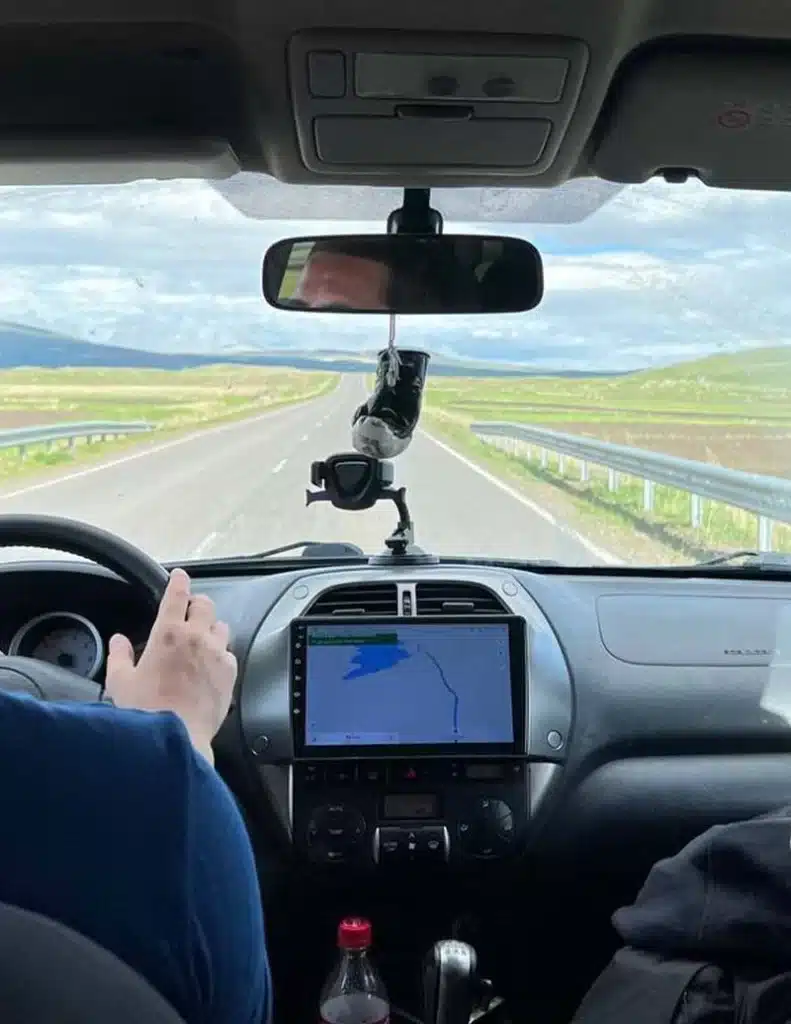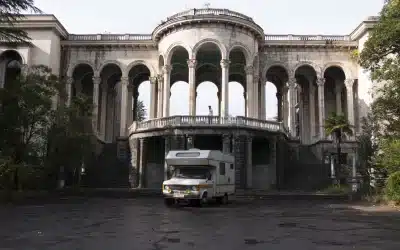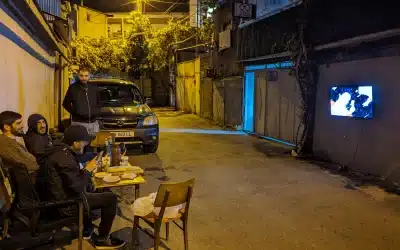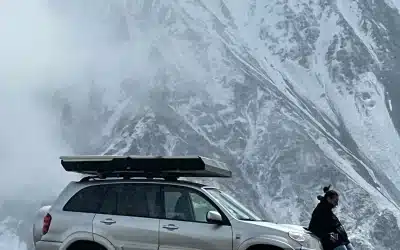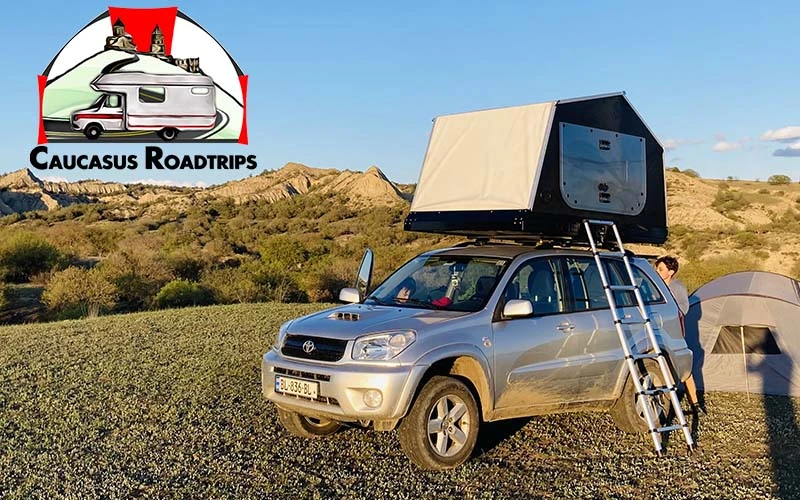Driving in Georgia: Rules, tips and special features
It can be stressful knowing you’re going to be driving in a country you don’t know. There are a lot of questions to be asked, and that’s perfectly normal.
“Do people drive well? What are the rules? The limits? Speed cameras? What is the state of the roads? Is it madness to drive in town? Etc.”
We’ll answer all your questions in this article and also give you some tips and tricks to ensure your driving holiday in Georgia goes off without a hitch.
Firstly, in Georgia we drive on the right, as in most countries in the world. Unless you’re English, Japanese or Australian, you won’t be disturbed.
1. Rules and speed limits
Like every country, Georgia has its own highway code, rules that regulate driving in the country to ensure that everything goes as smoothly as possible. Here are the most important driving rules to know if you want to drive in Georgia.
Speed limits
Speed limits are usually indicated on signs with the speed written in large numbers. If you haven’t seen a sign, the limits generally apply throughout the country:
- City limits: 60 km/h
- Limit on roads outside communes: 90 km/h
- Motorway speed limit: 110 km/h
Georgian law allows a margin of 15 km/h over the speed limit. Beware, however, of the actual margin of error of speed cameras.
Rules of conduct you need to know
- International driving licence: not compulsory, but recommended. Georgian law requires a category B Latin driving licence, which is valid for one year from the date of your last entry into Georgia. Some countries, such as the Arab countries, China and Japan, do not use Latin characters, while the United States and Canada offer different classes, such as F, which is not recognised by the European system. In this case, it is advisable to obtain an international permit. If you don’t want to take any risks, you can apply for your international driving licence on this specialised website, and it’s quick too. In all cases, you will also need to carry your passport with you in the event of a check.
- Car insurance: car insurance is not compulsory for Georgian vehicles. Only 7% of the vehicle fleet is insured. However, minimum insurance cover is compulsory for foreign vehicles.
- Alcohol and drugs at the wheel: above 0.3g of alcohol per litre of blood (one glass of alcohol) you are outside the law. As far as drugs are concerned, there is zero tolerance at the wheel.
- A few special features: seatbelts are only compulsory for the front seats. Children under 7 must be in car seats and children under 12 must be in the rear seats. If you are stopped by the police, do not get out of the vehicle, as this will be taken as an attack on the police, who will then have the right to “defend themselves”. The motorway in Georgia is completely free and does not require any special vignettes or badges. You can get on and off the motorway just like on a normal dual carriageway.
- If you’re used to driving in a European Union country, you won’t be confused by the highway code, the rules and the road signs. Almost everything is the same; what differs most is the conduct of the Georgians and their obedience to the rules.
2. Police, speed cameras and fines
Georgian police
As far as road safety is concerned, the Georgian police are fairly accommodating. It’s a police force that’s fairly close to the people, and you’ll see very few ‘RoboCops’ getting out of their flashing cars. You can overtake them without any fear. It’s totally possible to start talking politics in the course of a conversation with uniformed police officers. As far as inspections are concerned, they are fairly rare (we have never been inspected in 4 years of driving in Georgia). The Georgian police are mobile and arrest the offenders they come across on their roads. They don’t hide in ambush to flash motorists, leaving that job to the fixed speed cameras.
Speed cameras in Georgia
Speed cameras are regularly installed throughout Georgia. They are located on major roads, motorways and local communities. They are usually announced by signs. These are small, discreet cameras mounted on poles or road signs.
There are also radars for crossing solid white lines. As soon as one of your wheels passes over one of the white lines in front of this camera, you are photographed and fined.
Bus lane speed cameras: as the name suggests, you will automatically be fined if you drive on a bus lane in front of one of these cameras.
And finally, traffic light radars. If you run a red light or stop at a red light after the white line, you will automatically be fined.
As you can see, it’s extremely easy to be fined for driving in Georgia. Don’t worry, I’ve never been one in 4 years, and I’m not the wisest driver, so it’s possible to get through it. So how much do fines cost in Georgia?
Georgian fines
What are the fines in Georgia? Generally speaking, fines are not expensive. Here are a few examples:
- Non-wearing of seatbelts for front-seat passengers: 40 Gel (€13)
- Telephone at the wheel: 30 Gel (€10)
- Failure to carry a driving licence: 10 Gel (€3)
- Speeding between 15 and 40 km/h over the limit: 50 Gel (€17)
- Speeding more than 40 km/h over the limit: 300 Gel (€100)
- Crossing a white line: 50 Gel (€17)
- Failure to obey a traffic light: 100 Gel (€30)
- Driving in a bus lane or cycle lane: 100 Gel (€30)
- Drink-driving: from 200 Gel (€60) and can go much higher depending on the blood alcohol level.
If you receive your fines directly from a police patrol, it is impossible to pay them directly. Above all, don’t try – with the language difference, they might think you’re trying to corrupt them. Never try to bribe a Georgian policeman, they are not corruptible and you risk ending up in prison.
To pay your fines, you can either go to a bank and pay with the help of an adviser, or use street terminals (which are complicated and don’t always work), or pay on the Internet. police websiteThis is where you can find the photo or video of the offence.
Important: if you leave Georgia without paying your fines, be aware that they increase over time. The day you want to return to Georgia, you won’t be allowed in until you’ve paid the fine.
3. Georgian driving manners and habits
There is no “one” way of driving that is common to all Georgians. People in Tbilisi are not going to drive in the same way as people living in the countryside. Some people don’t ride very fast and others think they’re racing all the time. If we had to pick out one most common character trait, it would be that they don’t follow the highway code if it’s not to their liking.
Driving in the countryside in Georgia
In the countryside, you’ll generally be able to drive at your leisure. If you’re not going fast enough for some drivers, don’t worry, they’ll overtake you very quickly. They can overtake in dangerous places, with no visibility or with cars in front. To make overtaking easier, you might as well squeeze in a little on the right-hand side, as this could prevent an accident.
Motorway driving in Georgia
On the motorway, it’s the law of the fastest. Despite the speed limits, you’ll be overtaken by cars that can exceed 200 km/h (usually BMWs). If you’re overtaking in the left-hand lane and a faster car comes up behind you, it will flash its headlights directly at you so that you pull over, depending on the situation. It’s not uncommon to overtake on the right either, as some Georgians drive in the left-hand lane, so it’s easier to overtake on the right like everyone else.
City driving in Georgia
In town, do as you please. Despite all the rules and speed cameras in place, city driving is no picnic. Let’s start with the good points: traffic lights are generally respected and pedestrian crossings are fairly well respected, that’s it!
If there are large potholes, they are usually in this lane and Georgians park or stop momentarily in this lane to do their shopping or to talk. Yes, in the city, any space that is even 90% on a road will be a makeshift parking space as long as cars can get through.
Georgian city driving is aggressive. The Georgian driver will always want to go first and will do everything in his power to force his way through. Driving in the city is an eternal struggle. You can find yourself in funny situations where everyone gets stuck because one person didn’t want to let a car through, wanted to force their way through and then got stuck 8 metres further on with the same cars, the situation getting worse by the second with more and more motorists adding to the problem, because they want to get as far forward as possible by sticking to the cars in front.
If you’re in the rear view mirror of a car, the driver probably hasn’t seen you. It’s not uncommon to see lane changes and other bends being made instantaneously without the use of indicators. They plan very little on the road.
Beware of roundabouts. The rule is the same as everywhere else: cars already on the road have priority, but you should be aware that many cars not on the road will force their way through.
Generally speaking, driving in Georgia
Georgians are very helpful. If you have a problem with your vehicle, they won’t hesitate to stop and offer their help. You can accept, as a general rule, it’s offered in a benevolent way. He can drive without concentrating on his driving, and as long as there’s no accident, won’t necessarily understand why you’re getting upset in your car. There are also those who like to slalom between cars and drift all over the place. They can be scary, but just ignore them and they won’t stay with you for long.
4. Driving environment in Georgia
Road conditions
Contrary to what most articles on the internet say, the roads in Georgia are not that bad. The main and secondary roads are all tarmac and in good general condition. There can sometimes be damaged passages or a big hole in the middle of a good road, which can be very surprising. The further away you are from the main roads, the more unpaved roads you will find, making them difficult for low-guard vehicles.
The freeways are in good condition and you can drive fast without any problems. Please note that some sections of freeway remain unfinished. To cross the country from west to east, you’ll have to go through some rather unpleasant passages that wind around these colossal works.
During heavy rain or winter, some high mountain roads may be subject to snow or landslides. Unfortunately, this is normal in the mountains, whatever the country. So stay alert. To find out everything you need to know about winter driving in Georgia, read this article.
The unexpected
Many events can disrupt your driving in Georgia. Firstly, farm animals are always free-range. It’s not uncommon to see cows standing or lying in the middle of a road, so you’ll have to go around them, as they don’t move easily. You’ll also see free-roaming pigs and other farmed species.
You may also be stopped by a shepherd crossing the road with his entire flock. In that case, you have little choice but to wait for his entire herd to pass by. Finally, there are also street dogs that can cross the street.
Automotive services
There are regular service stations all along the main roads and in the towns. There are fewer service stations on the secondary routes, so plan to fill up regularly. Be wary of the service stations shown on Google Maps, some of which are no longer in operation in rural areas, but are listed as open on Maps. Don’t bet your refuelling on a station lost in the countryside that you’ve found on Google Maps.
Average fuel prices in 2024 :
- Diesel: 3.40 Gel per litre (€1.15)
- Petrol: 3.30 Gel per litre (€1.12)
- LPG: 1.80 Gel per litre (€0.60)
You can find all the prices, updated daily, on the globalpetrolprices.com website.
4. Driving tips for Georgia
First of all, we’d like to reassure you. Despite the points raised in the last few paragraphs, driving in Georgia is easy. The most difficult thing is to drive in Tbilisi or Batumi, mainly during rush hour, but it’s like in any other big city in the world. That’s why our first piece of advice is for people who are not comfortable with city driving: to avoid busy roads and traffic jams in town, drive either at night or in the early hours of the morning. The busiest times are between 9am and 12pm to get into town and between 5pm and 9pm from anywhere in town.
Second advice: always be vigilant! As well as other drivers’ driving behaviour, which can sometimes be chaotic (it’s possible to see a right-hand indicator with a car turning left), we’ve seen that the driving environment can hold a surprise in store for you at any moment, with animals running free, potholes, and so on.
Final advice: NEVER DRIVE WITHOUT INSURANCE! If you have an accident involving other vehicles, as a foreigner you will automatically be at fault. If you don’t have good Georgian insurance, the trouble starts.
That’s why we make a point of insuring our vehicles with the best insurance policies available in Georgia. Be very careful if you hire a vehicle in Georgia: ask for proof that the vehicle and its occupants are properly insured, even if the owner is not at the wheel. To have all these parameters, specific and much more expensive insurance policies are required, which some hire companies do not wish to take out.
5. What should I do if I have an accident in Georgia?
In the event of an accident or fender-bender in Georgia, you must not move your vehicle and you must immediately call your insurer and then the police (this is a legal obligation). Your insurer (who should be able to speak English) will then tell you what to do depending on the seriousness of the accident.
Don’t panic, in the event of personal injury there is a good ambulance service in Georgia. They even have 4×4 ambulances to access remote areas.
Don’t give in to any pressure from motorists to move the vehicle as it’s in the way. If you do this before the policy or insurer has agreed, the insurance company will not pay.
And don’t give in to any pressure from one of the motorists involved in the accident or fender-bender. As we said, only 7% of vehicles are insured in Georgia. Chances are that the person involved in the accident is not insured. They may then try to scare you into paying for the damage to their vehicle. Whether you are at fault or not, never accept this (unless you have no insurance…).
Reports are drawn up by the police, and you will never find any report papers in a vehicle.
Conclusion
Take out good Georgian insurance or hire your vehicle from a reputable agency and make the most of this superb country!
With a minimum of care and prevention (which you have done by reading this article) you will have a very pleasant stay on Georgian roads. Cities like Tbilisi and Batumi can be a bit tricky for people who don’t like driving in the city, but if you choose your timetable carefully, you won’t have any problems.
Have a safe journey!
Visiting Georgia: 5 must-see places
Visiting Georgia: 5 must-see areasGiven Georgia's size, you might be inclined to think that it's a country that can be visited quickly and that you'll have covered it all in no time. It would be a big mistake to believe that! Georgia boasts an impressive diversity of...
Is Georgia a safe or dangerous country?
Georgia, safe or dangerous country?Georgia has a dangerous reputation among Westerners, with corrupt police, thieving Georgians and Russia about to go to war overnight. We have noticed that these comments come from people who have never been to Georgia, or from people...
Visit Georgia in winter by 4×4, camper or van
Visit Georgia in winter by 4x4, camper or van: tips, activities, placesWinter in Georgia brings a unique beauty to the Caucasus mountains and offers an exceptional opportunity for vanlife lovers. Snow-covered landscapes, picturesque villages and the warm atmosphere of...

